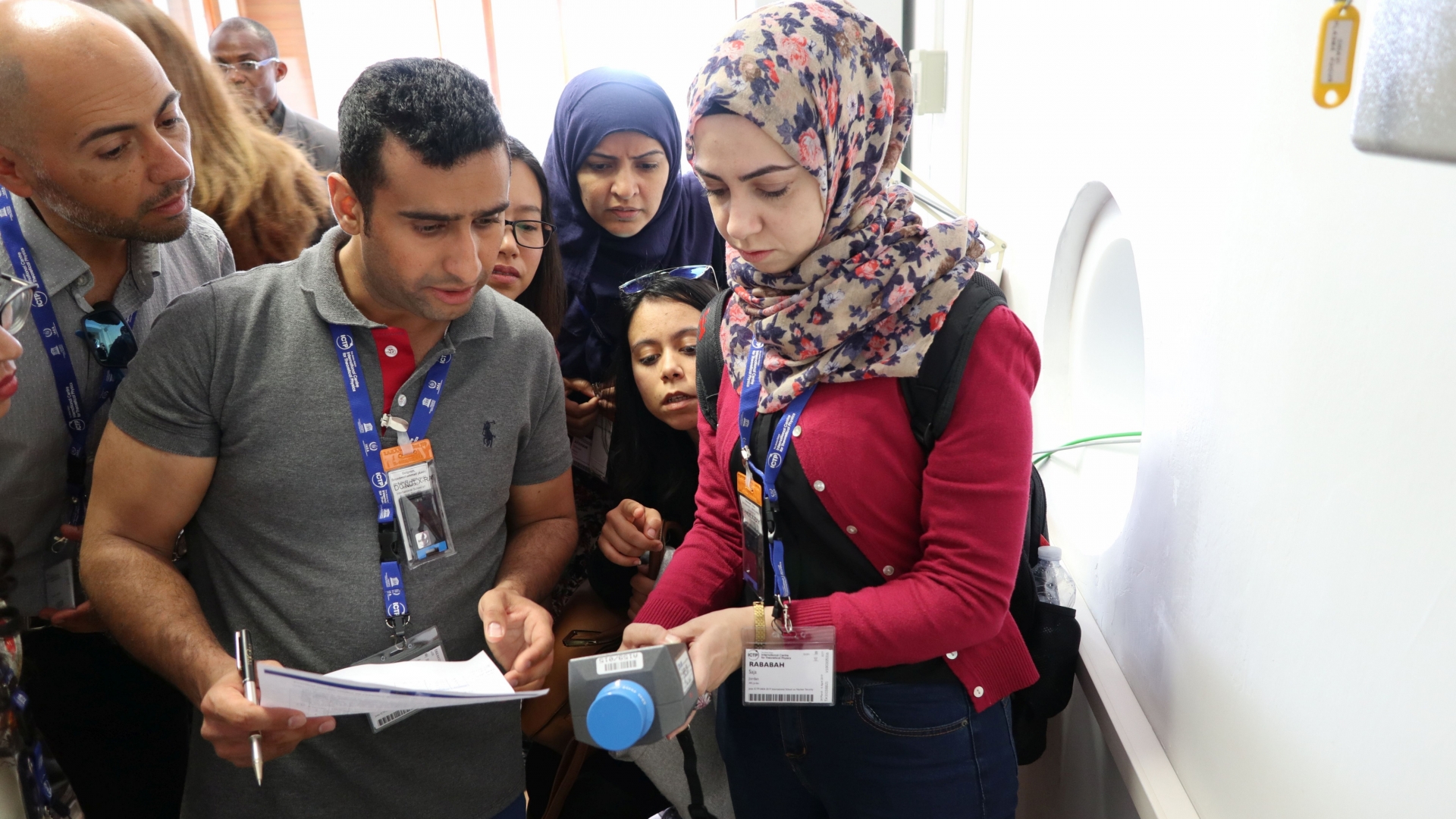
If you would like to learn more about the IAEA’s work, sign up for our weekly updates containing our most important news, multimedia and more.
A foundation for the future
Graduates reflect on the International School on Nuclear Security
Francesca Andrian, Inna Pletukhina
Effective nuclear security requires highly skilled professionals. The International School on Nuclear Security, which takes place annually in Trieste, Italy and is supported by the IAEA and the Government of Italy, has trained over 400 students from more than 100 countries since 2011, many of whom have gone on to use this knowledge to help further nuclear security initiatives in their countries.
“I have used the knowledge I gained at the International School on Nuclear Security to help my group develop nuclear security processes and procedures,” said Felix Ameyaw, from the Ghana Atomic Energy Commission, who participated in the School in 2013. “We are also working on synergies between nuclear security and safety for my country as part of our work to introduce a nuclear power programme.”
I consider the knowledge acquired at this School as the very first step of my professional career in the nuclear field.
The School’s intensive, two-week programme, jointly run by the IAEA and the Abdus Salam International Centre for Theoretical Physics (ICTP), is designed for early career professionals from a wide range of backgrounds, including nuclear operators, regulators, law enforcement officers, academics and researchers.
It integrates theoretical lectures with practical exercises and technical visits to cover nuclear security broadly, from legal frameworks and threat assessment, to physical protection systems and nuclear security culture. Participants also get hands-on experience in using specialized equipment to detect nuclear or other radioactive material that has gone missing or fallen out of regulatory control.
With its comprehensive curriculum, the School provides participants with a unique avenue for deepening their understanding and expertise in nuclear security so that they can help build strong national nuclear security regimes.
“This School assists countries in developing a cadre of informed and trained staff with the right knowledge, competence and skills in nuclear security,” said Dmitriy Nikonov, Education Officer in the IAEA’s Department of Nuclear Safety and Security, who explained how other forms of IAEA support complement the School’s activities. “These types of support play an important part in helping countries address their national responsibilities in nuclear security.”
Impact on participants’ careers and national nuclear security
The School’s impact is reflected in how participants have made use of what they have learned. More than 90% of participants surveyed after graduating said that the School has helped them advance professionally; for example, some have been assigned additional responsibilities, while others have been promoted or have moved to other organizations with specific nuclear security functions. For some, attending this course was also an important stepping stone into
the field.
“I consider the knowledge acquired at this School as the very first step of my professional career in the nuclear field,” said Edgar Andrés Monterroso Urrutia, who is an alumnus of the 2019 School and Head of the Secondary Dosimetry Calibration Laboratory at Guatemala’s Ministry of Energy and Mines. “For us to continue reaping the benefits of radiation in medicine, industry and agriculture, nuclear security must be integrated into the daily routines of everyone working with radioactive material.”
Attending the School has helped over 70% of surveyed graduates to improve nuclear security in their organizations. For some participants, this has led to implementing nuclear security good practices directly after the course.
“At the School, we practiced a complex threat assessment process for a fictitious facility containing radioactive material. I then followed the steps we learned during the exercise and facilitated, with additional help from the IAEA, the design basis threat process for Ghana’s research reactor,” said Ameyaw.
Other graduates have translated what they have learned into improvements such as the adoption of new regulations, enhanced monitoring procedures and physical protection upgrades.
“Through lectures, exercises and conversations with both operators and regulators, I drew on nuclear security principles from concepts to legal requirements to on-the-ground procedures of the operators,” said Eltayeb Hassan from the Egyptian Atomic Energy Authority, an alumnus of the 2011 School. “As I helped draft the national regulations on nuclear security and safety, I had in mind the perspective of the operators that would be implementing these regulations at their facilities.”
The School and its curriculum have also served as a model for other regional schools set up by the IAEA in a variety of languages — Arabic, English, French and Spanish — as well as for similar initiatives established by former graduates. In Tajikistan, for example, a regional training centre was set up by an alumnus of the 2015 School in cooperation with experts from nine neighbouring countries. It has since trained more than 500 professionals using a syllabus inspired by the School’s programme.
Underpinning these activities are the professional relationships participants form at the School. This community has led to the creation of a wide network of nuclear security experts around the globe and opened the door to new opportunities for some former participants, helping to further bolster nuclear security worldwide.
“Collaboration towards a common vision for nuclear security is key to an effective and robust global nuclear security framework,” Nikonov said. “Transferring knowledge, sharing best practices and hosting training courses are all essential activities to advancing nuclear security initiatives and continuing to cultivate leaders of today and the future.”


